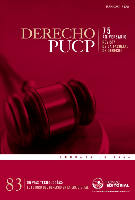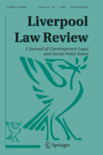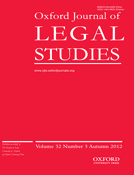
IOWA LAW REVIEW
Scope & Guideline
Transforming legal challenges into scholarly solutions.
Introduction
Aims and Scopes
- Legal Scholarship and Policy Analysis:
The journal publishes in-depth analyses of current legal issues and policies, often advocating for reforms based on empirical data and legal theory. - Interdisciplinary Approaches to Law:
There is a consistent focus on integrating insights from economics, sociology, and technology into legal analysis, reflecting the multifaceted nature of contemporary legal challenges. - State-Specific Legal Issues:
Particular attention is given to legal matters relevant to Iowa, including state law reforms and local policy discussions, which provides a unique regional perspective. - Emerging Legal Trends and Technologies:
The journal explores the implications of new technologies, such as AI and data privacy, on existing legal frameworks, contributing to the discourse on law's adaptability. - Social Justice and Equity:
A significant portion of the articles addresses issues of social justice, including the rights of marginalized communities, thus fostering a commitment to equity in legal practices.
Trending and Emerging
- Data Privacy and Technology Law:
There is a significant increase in articles addressing data privacy, AI, and technology's impact on law, reflecting the growing importance of these issues in the digital age. - Social Justice and Equity in Law:
A marked rise in discussions around social justice, equity, and the legal rights of marginalized groups indicates a shifting focus towards ensuring fairness and addressing systemic inequalities. - Health Law and Policy:
Emerging themes in health law, particularly related to mental health, reproductive rights, and public health legislation, demonstrate an increasing relevance of health issues in legal discourse. - Environmental Justice and Law:
A growing interest in the intersection of environmental law and social justice indicates a trend towards addressing environmental issues through the lens of equity and community rights. - Criminal Justice Reform:
There is an uptick in articles focused on comprehensive criminal justice reform, with an emphasis on systemic changes and the implications of existing laws on vulnerable populations.
Declining or Waning
- Traditional Intellectual Property Law:
There has been a noticeable decrease in articles solely focused on traditional aspects of intellectual property law, suggesting a shift towards more contemporary issues that intersect with technology and innovation. - Criminal Law and Sentencing Reform:
Although criminal law remains a relevant topic, there is a decline in the frequency of articles focused solely on sentencing reform, possibly due to a broader focus on systemic issues within the criminal justice system. - Environmental Law:
Discussions specifically centered on environmental law have diminished, indicating a potential shift towards more integrated approaches that consider environmental issues within broader social justice frameworks. - General Legal Theory:
There appears to be a reduction in publications dedicated to abstract legal theory, as the journal increasingly prioritizes empirical studies and practical implications over purely theoretical discussions. - Corporate Law and Governance:
The focus on traditional corporate governance issues seems to have waned, with fewer articles dedicated solely to this area, reflecting a possible shift towards examining corporate responsibilities in broader social contexts.
Similar Journals

Novum Jus
Fostering global access to legal and social insights.Novum Jus is a prominent academic journal dedicated to advancing knowledge in the fields of Law, Sociology, and Political Science. Published by UNIV CATOLICA COLOMBIA, FAC DERECHO, this open-access journal has been providing a platform for scholarly communication since 2008, making valuable research freely accessible to readers around the globe. With an impressive impact reflected in its 2023 category quartiles—Q1 in Law and Q2 in Sociology and Political Science—Novum Jus is ranked favorably within Scopus, standing at #479 out of 1025 for Law and #823 out of 1466 for Sociology and Political Science, indicating its significant contribution to the academic community. The journal aims to foster interdisciplinary dialogue and disseminate innovative ideas that shape contemporary legal and social landscapes, catering to researchers, professionals, and students alike. With its commitment to quality and rigorous peer review, Novum Jus remains an essential resource for those engaged in the evolving dynamics of law and society.

Washington International Law Journal
Navigating the Complexities of International LawWashington International Law Journal is a distinguished publication dedicated to the field of international law, published by the University of Washington. With an ISSN of 2377-0872, this journal provides a vital platform for scholarly discourse and critical analysis on global legal issues, ranging from human rights to trade law. Although it currently does not offer open access options, the journal aims to facilitate the dissemination of pioneering research and insightful commentary from leading scholars and practitioners in the field. It holds significant value for researchers, professionals, and students seeking to deepen their understanding of international legal frameworks and their implications worldwide. The journal’s commitment to fostering academic excellence positions it as an essential resource for anyone engaged in the dynamic landscape of law on an international scale.

Derecho PUCP
Fostering innovative scholarship in law.Derecho PUCP is a distinguished open access journal published by the Pontificia Universidad Católica del Perú, specifically from the Faculty of Law. With a commitment to advancing legal scholarship, this journal has been an essential resource in the field of law since 2005, providing researchers, practitioners, and students with access to critical analyses and discussions on various legal topics. Based in Lima, Peru, Derecho PUCP holds a prestigious position with a Q2 ranking in the Law category, reflecting its impactful contributions to the social sciences, particularly in the legal domain. The journal publishes cutting-edge research and promotes innovative discourse, aiming to foster academic excellence and engage with contemporary legal challenges. As it continues to converge into its future issues from 2019 to 2024, Derecho PUCP exemplifies a vital platform for those committed to the pursuit of legal knowledge and research.

SYDNEY LAW REVIEW
Advancing Legal Scholarship for a Changing WorldSYDNEY LAW REVIEW is a prestigious academic journal published by the Sydney Law School, dedicated to the field of legal studies and interdisciplinary analysis of law and its impact on society. With its ISSN 0082-0512 and E-ISSN 1444-9528, this journal serves as a vital resource for legal scholars, researchers, and practitioners in Australia and globally. The journal has undergone several phases since its inception in 1990, reflecting the evolving landscape of legal scholarship and policy. Although currently not an open-access publication, it remains a significant contributor to legal discourse, maintaining a Q4 ranking in the Law category as per the 2023 category quartiles. The SYDNEY LAW REVIEW encourages submissions that critically explore contemporary legal issues, thereby fostering a robust platform for academic inquiry and professional advancement.

CATHOLIC UNIVERSITY LAW REVIEW
Advancing Legal Scholarship with a Catholic Perspective.CATHOLIC UNIVERSITY LAW REVIEW is a premier legal periodical published by the Catholic University of America Press, located in the heart of Washington, D.C. with a dedicated focus on the intersections of law, education, and religious studies. Since its establishment in 1973, the journal has served as a critical platform for scholarly discourse, presenting innovative legal analysis and thought-provoking research that caters to scholars, practitioners, and students alike. With an ISSN of 0008-8390, this non-open access journal holds a notable place in the academic community, reflected by its category quartiles in 2023, ranking Q4 in Education and Law, and Q3 in Religious Studies. The Catholic University Law Review is distinguished not only by its commitment to advancing legal scholarship but also by its dedication to exploring the implications of law through a distinctly Catholic lens. Its consistent output of high-quality articles contributes to ongoing debates and developments in these fields, making it an essential resource for those interested in the legal implications of contemporary issues.

National Taiwan University Law Review
Connecting Scholars and Practitioners in Legal ThoughtNational Taiwan University Law Review, with ISSN 1812-6324, is a prestigious academic journal published by the NATIONAL TAIWAN UNIVERSITY COLLEGE OF LAW. As a pivotal platform in the field of law, this journal aims to foster scholarly discourse and promote the exchange of ideas regarding legal theories, practices, and developments, particularly within the context of Taiwan and the broader Asian legal landscape. Although it does not currently offer open access, its selectivity ensures a high standard of peer-reviewed research, appealing to researchers, legal practitioners, and students alike. The journal's commitment to exploring contemporary legal challenges and ideologies positions it as an essential resource for those seeking to enhance their understanding of the dynamic legal systems in Asia and beyond. Located in Taipei City, Taiwan, the National Taiwan University Law Review invites contributors and readers who are passionate about advancing legal scholarship and practice.

Liverpool Law Review
Championing Open Access to High-Quality Legal ResearchLiverpool Law Review, published by Springer, is a prestigious open-access journal in the field of law, dedicated to fostering scholarship and promoting dialogue on contemporary legal issues. Since its inception, the journal has evolved significantly, with a publishing history dating back to 1979 and showcasing an extensive range of articles and reviews that contribute to the development of legal theory and practice. The journal is indexed under Scopus, ranking #352 out of 1025 in the Social Sciences category, placing it in the 65th percentile—indicative of its solid reputation and relevance in the field. Liverpool Law Review provides an engaging platform for researchers, professionals, and students alike by facilitating access to high-quality legal research, with full open access available since 2012, ensuring that vital academic discussions are accessible to a global audience. With its commitment to exploring both historical and contemporary issues in law, this journal remains an essential resource for those seeking to deepen their understanding and contribute meaningfully to the legal landscape.

Revista de Derecho Civil
Connecting Ideas, Shaping Legal FuturesRevista de Derecho Civil is a distinguished academic journal dedicated to the field of civil law, published by NOTYREG HISPANIA in Spain. With an ISSN of 2341-2216 and E-ISSN of 2341-2216, it has established itself as an essential platform for scholarly discourse since gaining Open Access status in 2014, thereby ensuring a wider dissemination of knowledge and increased accessibility for researchers and practitioners alike. The journal has been recognized in the Q2 category in the field of Law for 2023, reflecting its contribution to the academic community and competitive standing within the discipline, evidenced by its Scopus rank of 683 out of 1025 in the Social Sciences and Law category. Covering a wide range of topics and converging from 2018 to 2024, Revista de Derecho Civil invites contributions from legal scholars globally, fostering an environment that promotes in-depth analysis, critical thought, and innovative research in civil law. As such, it holds an important place for students, researchers, and professionals aiming to engage with contemporary legal issues and doctrines.

Oxford Journal of Legal Studies
Elevating Understanding of Complex Legal FrameworksThe Oxford Journal of Legal Studies, published by Oxford University Press, stands as a prestigious platform for scholarly discourse within the field of law. Renowned for its impactful contributions to legal scholarship since its inception in 1981, this journal has established itself in the top tier of its category, currently classified as Q1 in Law based on the 2023 category quartiles. With its ISSN 0143-6503 and E-ISSN 1464-3820, the journal provides a comprehensive exploration of contemporary legal issues, theoretical perspectives, and empirical research, attracting contributions from leading academics and practitioners alike. Residing within the Social Sciences arena, it holds an impressive rank of 194/1025, landing it in the 81st percentile according to Scopus rankings. Though not currently an open-access publication, the Oxford Journal of Legal Studies remains vital for researchers, professionals, and students eager to deepen their understanding of legal frameworks and contemporary challenges within the legal landscape. Located in the heart of the United Kingdom, at Great Clarendon St, Oxford OX2 6DP, England, the journal is an indispensable resource for those advancing the study and practice of law.

COLUMBIA JOURNAL OF LAW AND SOCIAL PROBLEMS
Bridging Legal Theory and Social JusticeCOLUMBIA JOURNAL OF LAW AND SOCIAL PROBLEMS is a distinguished academic journal published by the COLUMBIA JOURNAL TRANSNATIONAL LAW ASSOCIATION, dedicated to the intersection of law and social issues. Established in 1973, this journal serves as a platform for the exploration and analysis of socio-legal problems in the contemporary context. With its robust scope encompassing areas such as social justice, legal reform, and public policy, the journal appeals to researchers, professionals, and students alike who are engaged in critical examinations of the legal systems and their societal impacts. Although it is not an open-access journal, it maintains academic rigor as reflected in its Q4 ranking across various categories including Law and Sociology, indicating its commitment to disseminating scholarly work that contributes to ongoing discussions in these fields. The journal’s address at Columbia University School of Law in New York situates it within one of the leading centers for legal scholarship, making it an essential resource for those seeking to deepen their understanding of law's role in addressing social problems.